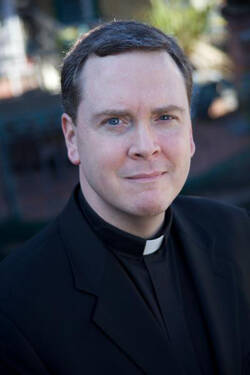‘Out of our memory of the Holocaust,” said President Jimmy Carter in 1979, “we must forge an unshakable oath with all civilized people that never again will the world stand silent, never again will the world...fail to act in time to prevent this terrible crime of genocide.” President Carter made those remarks as he received the official report of the presidential commission on the Holocaust, or Shoah, the deliberate and singularly horrific mass murder of millions during the Second World War, most of them European Jews. It is worth remembering this pledge now, as the plight of Christians in the Middle East makes “again” terrifyingly nearer.
Last spring Sister Diana Momeka, of the Dominican Sisters of St. Catherine of Siena from Mosul, Iraq, appeared before the House Foreign Affairs Committee. The following is an excerpt from her testimony.
In November 2009, a bomb was detonated at our convent in Mosul. Five sisters were in the building at the time and they were lucky to have escaped unharmed. Our Prioress, Sister Maria Hanna, asked for protection from local civilian authorities but the pleas went unanswered. As such, she had no choice but to move us to Qaraqosh. On June 10, 2014, the so-called Islamic State in Iraq and Syria, or ISIS, invaded the Nineveh Plain, which is where Qaraqosh is located. Starting with the city of Mosul, ISIS overran one city and town after another....
As this horror spread throughout the Nineveh Plain, Nineveh was emptied of Christians, and sadly, for the first time since the seventh century A.D., no church bells rang for Mass in the Plain of Nineveh…. To add insult to injury, the initiatives and actions of both the Iraqi and Kurdish governments were at best modest and slow. Apart from allowing Christians to enter their region, the Kurdish government did not offer any aid either financial or material…. Thankfully, the Church in the Kurdistan region stepped forward and cared for the displaced Christians, doing her very best to handle the disaster. Church buildings were opened to accommodate the people; food and non-food items were provided to meet the immediate needs of the people; and medical health services were also provided. Moreover, the Church put out a call and many humanitarian organizations answered with aid for the thousands of people in need….
But the current persecution that our community is facing is the most brutal in our history. Not only have we been robbed of our homes, property and land, but our heritage is being destroyed as well. ISIS has been and continues to demolish and bomb our churches, cultural artifacts and sacred places. Uprooted and forcefully displaced, we have realized that ISIS’ plan is to evacuate the land of Christians and wipe the earth clean of any evidence that we ever existed. This is cultural and human genocide. The only Christians that remain in the Plain of Nineveh are those who are held as hostages.
I am but one, small person—a victim myself of ISIS and all of its brutality. Coming here has been difficult for me—as a religious sister I am not comfortable with the media and so much attention. But I am here, and I am here to ask you, to implore you for the sake of our common humanity, to help us. Stand with us as we, as Christians, have stood with all the people of the world and help us. We want nothing more than to go back to our lives; we want nothing more than to go home.








